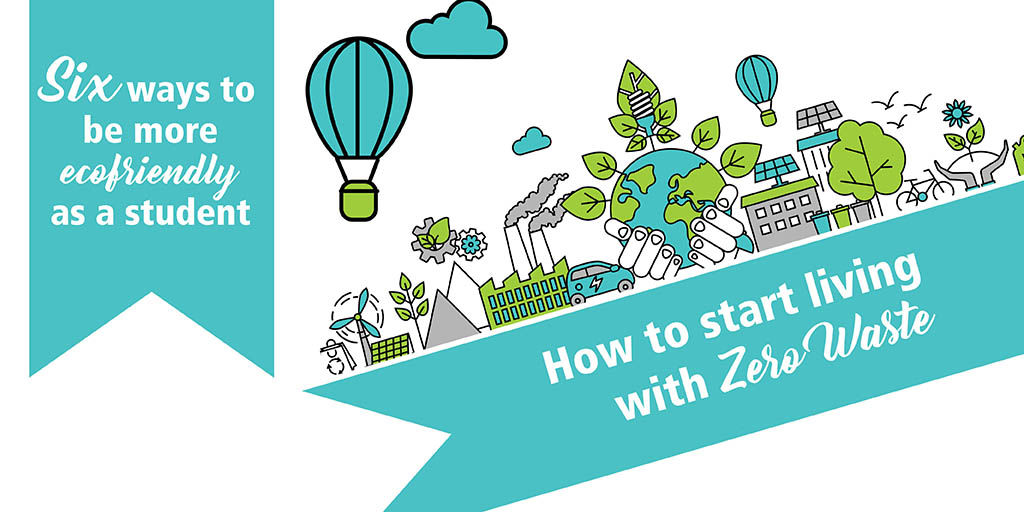Six ways to be more ecofriendly as a student

Almost everyone knows the importance of being green. However, it can be hard to actively ecofriendly while you're busy with school. That being said there are many ways to be ecofriendly even when you don't have a lot of time to spare. With little effort you can make a tiny difference.
Stop using plastic bags
It can take 10 to 20 years for a plastic bag to completely biodegrade. Over 1 trillion bags are produced a year. In every square mile of the ocean there are roughly 46,000 plastic bags found (according to US Environmental Protect Agency). A simple solution that you can switch to is buying reusable bags. A bonus to buying reusable bags is that in the long run it will save you money since many places are charging for plastic bags.
Stop using plastic bottles
Bottled water can be very expensive and is hurting the environment. On average, a bottled water costs between one to two dollars. Plastic bottles can take up to 450 years to fully biodegrade. A very simple and yet again cheaper alternative is buying a reusable water bottle. It's important to be sure to buy the right type of reusable bottles. Make sure you get a bottle that is Bisphenol A (BPA) free. Stainless steel is one of the longest lasting bottles you can buy.
Take digital notes
Using paper for your classes to take notes and study is something many of us have been doing since we were children. However, how much of those pages do you keep? Probably, not many. The world produces 300 million tons of paper (According to the US Environmental Protection Agency). Many classes have started upload loading power points and notes online which is already reducing paper. Using tablets, laptops, and phones for notes are going to help reduce the amount of paper you use.
Start composting
It may not be easy to compost depending on what your living situation is like. However, Fanshawe's campus has many locations where you can compost. Some items you can compost include: fruits, vegetables, eggshells, leftover food (excluding bones), coffee filters/ grounds, and used paper napkins and paper towels.
Avoid Driving
A way to help the environment and improve your physical health is to start walking and biking more. Even just using public transport can help reduce the amount of nitrogen oxides, carbon monoxide, and other pollution. If you are a full time Fanshawe student, you have a bus pass that is paid by your tuition fees.
Recycle
Although this seems obvious, it's crucial that you are properly recycling. Almost 80% of trash is actually recyclable (according to livinggreen.wayne.edu). Also if too much of a recycling bin is contaminated or poorly sorted, it is just thrown in the trash. Knowing what is recyclable and what bin it should be placed in is important. For example, separating plastics and paper is a great start. Also properly recycle electronics by researching where you can drop them off. You can even recycle clothing by giving or purchasing clothes and accessories by going to thrift stores such as Goodwill.














